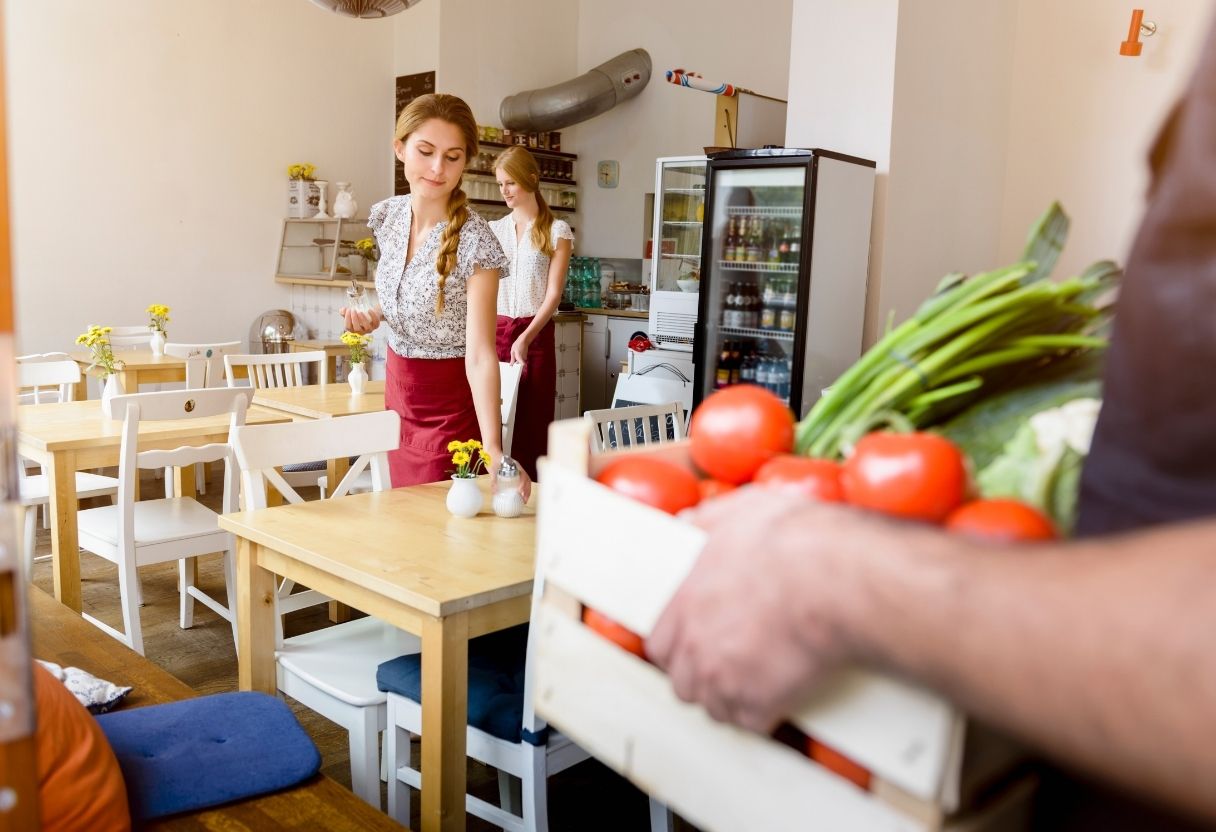3 Things New Restaurants Should Look for When Selecting Vendors

When opening a restaurant, you’ll need to jump over a lot of hurdles. From funding and renovating your storefront, developing the menu, and complying with local legal ordinances—you’ll have a lot on your plate (pun very much intended).
This won’t be a cakewalk. You’ll get so busy that you’ll forget one of the essential aspects of your opening scheme—selecting the right inventory provider!
After all, what’s a restaurant without food?
In your haste to cover all your bases in time for the grand opening, keep in mind that choosing the right restaurant vendor is a much more involved process than it seems. To take the stress out of this vital decision, we’ve created this guide to help walk you through the process.
So, where should you start?
Consider your produce source and long-term vendor relationship
1. Locally source your produce
The restaurant industry has come a long way over the preceding decades, with consumers now preferring to dine at businesses that share their values. It should not be surprising that 70% of restaurant operators report that their customers are more interested in locally sourced items.
Relying on vendors that source locally grown produce has the added benefit of shortening the distribution distance from farm to table. A shorter distance during distribution also reduces transportation and delivery expenses (and lowers the overall use of jet fuel and diesel).
By partnering with local produce sources and vendors, customers can take pride in knowing that their dining choices can help make a difference for their community and the world at large. Maintain this practice consistently to help increase your business’s customer volume.
Locally sourced produce can also help provide an exciting angle to market your restaurant. Given the impact of global issues at the dinner table today, choosing a vendor that provides the produce you need with the values your customers look for can make a massive difference.
2. Ask for samples and references
Starting small? As a small restaurant, you won’t have the necessary manpower to help with handling large quantities of inventory. In other words, you’ll have to rely on quality over quantity.
How will this affect your search for the right produce vendor?
To ensure you’ll get the quality you’re looking for, you’ll need to take extra steps to verify your potential suppliers before signing a contract.
Ask for references from current or past customers:
- Former customers should give you a sense of what a sustained relationship with the vendor will be and their limitations.
- Current customers should be able to tell you what to expect from the supplier in question. Make sure to ask about their reliability and the quality of their food.
Do a sampling of the supplier’s inventory as well. If they’re a comprehensive supplier, try all their different categories of items, from meats and seafood to fruits and vegetables.
Taking a deeper dive into the quality of their partnerships and their stock should give you a clear idea of what to expect from the relationship going forward.
3. Consider scalability
It’s challenging to get a restaurant off the ground. In fact, 17% of restaurants go out of business within their first year of operation. These rates are on par with many other businesses within the service industry.
Those who can weather the first year's storm can look forward to a long and profitable lifespan. That’s why ensuring your vendors can scale as you grow is important.
Inquire about the specifics of where and how they source their food. Do they have a farm that can accommodate large orders during certain seasons? Is there an additional wait time to get large shipments of certain items?
When push comes to shove, you’ll need to ensure your supplier can pull through and get you your much-needed supplies. After all, missing our out-of-stock items on the menu can discourage customers from eating at your restaurant.
Balancing size vs. quality in restaurant vendors
You’ll want to find a happy medium when balancing restaurant vendor choices. You’ll want a provider large enough to cover order changes and frequent on short notices, but small enough that they can deliver the organic products your customers love.
To get the best outcome when searching for a restaurant vendor, aside from following our 3 tips above, be realistic about what you need and what’s essential to satisfy your customers.
That way, you can make sound and more informed decisions that keep your customers happy and your business running smoothly.

Need a Step-by-Step Guide to Restaurant Profitability and Sustainability?
Top it all off with smart temperature monitoring to protect your inventory
High-quality ingredients are only as good as the storage unit they’re kept in. If there’s anything else you’ll need to invest in, temperature monitoring should be at the top of your list.
GlacierGrid is a San Francisco-based restaurant tech company that builds tools for the food service industry to prevent inventory waste, mitigate equipment breakdowns, and reduce electricity consumption while saving our clients $15,000 per year.
So, do you want to cut costs without cutting corners? Try GlacierGrid now!







